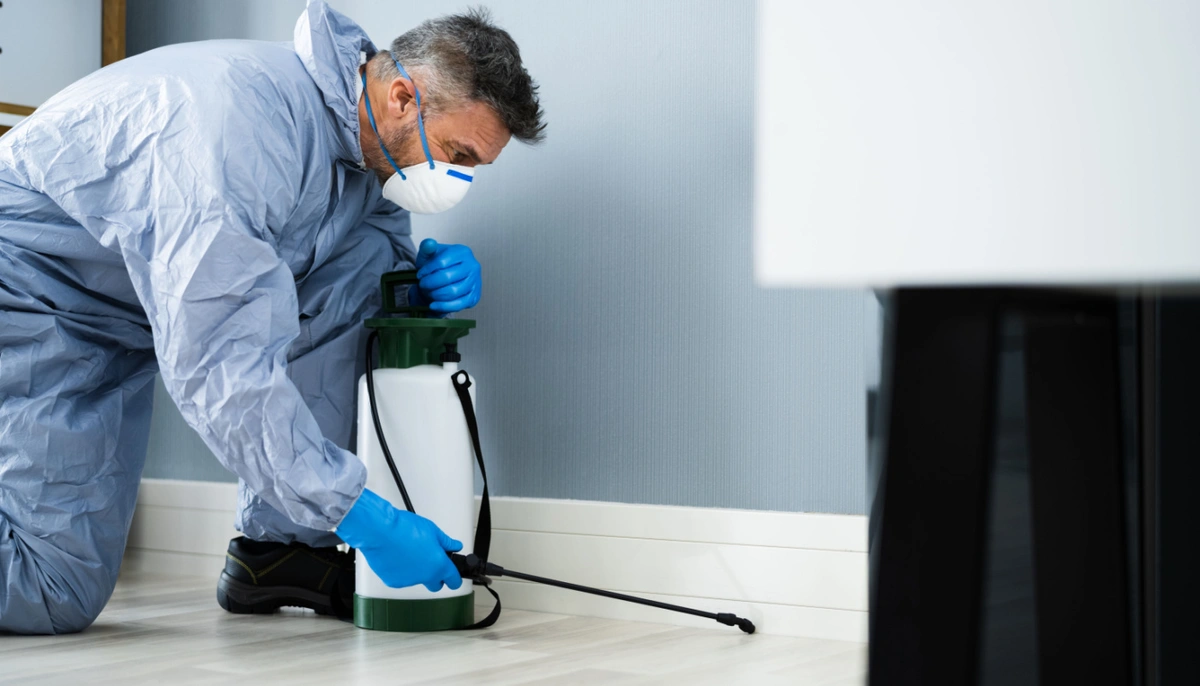Bug and rodent infestations are always a terrible thing to deal with. However, if you’re living in a rental, what steps can you take to address the situation?
Firstly, it’s important to determine who is responsible for calling the exterminator. You should also consider how to manage this awkward scenario without crossing boundaries when dealing with your landlord.
Don’t worry, though. Once you know your rights, obligations, and the best ways to clean your area of unwelcome invaders, handling pests when renting is not as difficult as it sounds.
Let’s explore how in detail below!
Table of Contents
Understanding Your Rights as a Tenant
You need to know your responsibilities as a tenant before you even consider picking up the phone to call a mouse exterminator.
Usually, landlords have to make sure their buildings are hospitable, meaning they have to keep the space free from insects. However, the conditions of your rental agreement and where you live will affect the specifics of this.
Tell your landlord right away if you discover a pest issue like mice. They are required to take care of the problem, and writing this down offers a clear paper trail.
Usually, they will have to schedule a pest control service or an exterminator to solve the issue quickly.
However, you can find yourself footing the price if the infestation results from your own actions, such as inadequate food storage or poor hygiene.
So, you need to be especially careful if you are renting student accommodation. These out-of-pocket expenses can be way above your budget.
Taking Immediate Action
You should act quickly to guard your space while waiting for your landlord to take the appropriate measures.
First, find the cause of the issue. Look over your house and seal any access spots with weather stripping, wire wool, or caulk. Along with slowing down the invasion, this will stop new pests from entering.
Focus on removing anything that can be drawing them in. Mice, for instance, are drawn to food scraps and waste. You will thus have to improve your cleaning game.
Wipe surfaces, keep food in sealed containers, and make sure your trash is routinely carried out. Be careful because even small crumbs can draw unwelcome guests.
Choosing the Right Mouse Exterminator
Should the issue continue, it’s time to call in experts. Nonetheless, how can you choose the appropriate mouse eradicator for the task?
Not all pest control companies are made equal. You want a service that is competent and employs gentle yet effective methods. Ask your landlord whether they have a preferred exterminator, as some rental agreements call for utilising a particular business.
On the other hand, if it’s up to you to do your homework, read reviews, get suggestions, and ask the service for more information on the approaches they use.
An expert will provide an all-encompassing service, covering an initial inspection, treatment, and follow-up visits to guarantee the issue is totally eliminated.
To avoid dangerous chemicals in your house, you can resort to a business that employs environmentally friendly techniques, including natural deterrents and humane traps.
The Extermination Process: What to Expect
You could be wondering what will happen once the mice removal specialist shows up. Usually, they begin by carefully looking over the property to determine the degree of the infestation and point out areas of entrance.
Treating a rat or bug problem calls for more than just setting traps. It also entails making sure these unwelcomed guests cannot return once they have been eliminated.
They mix traps, baits, and deterrents according to the degree of the infestation. Certain exterminators also provide non-lethal solutions.
Those catch pests without killing them, so they can be released far from your house. If you prefer ethical approaches, make sure your chosen professional is aware of this first.
It is important to remember that the work does not stop following the initial eradication. To prevent further infestations, you need to have spotless, sealed surroundings.
They could advise you on how to make your house pest-free and even recommend structural repairs depending on your needs.
Working With Your Landlord
Dealing with a pest issue as a lessee can be embarrassing since nobody wants to be known as the “pest problem” tenant! However, clear communication is absolutely vital.
Ultimately, your landlord’s best interest is for the property to remain in good shape, which includes quick pest management.
Follow up if you reported a concern and your landlord has not yet taken action. Be tenacious, but maintain an air of professionalism and civility.
Although this should always be discussed with your landlord first, you can arrange for the extermination yourself and deduct the expense from your rent if they’re not responsive.
Should a landlord neglect to keep your flat livable, several local housing authorities or tenant rights associations can intervene.
Long-Term Prevention
Once the problem is taken care of, you won’t want to go through this whole ordeal again. Luckily, there are a few easy steps you can implement to keep your house free of pests.
First of all, you must clean regularly. Store food in sealed containers, clean up crumbs and never leave dirty dishes overnight in the sink. Mice are always searching for easy food sources. A clean house provides little motivation for them to stay.
Closing any possible access points will also stop additional infestations. This covers wall cracks, door gaps, and even spaces around plumbing and wiring. Mice can squeeze through tight crevices. So, never ignore even the smallest of holes.
Lastly, give natural deterrents some thought. Mice really dislike the smell of peppermint oil. To keep them away, try putting cotton balls soaked in the oil around your house, especially near spots where they can gain entry.
Ultrasonic repellents are also a long-term fix. They produce high-frequency sounds that drive rats away. However, they should be paired with other anti-rodent tactics, as they’re simply not enough on their own.
Conclusion
Though sometimes a professional touch is needed, preventive efforts can surely help reduce the likelihood of an invasion. Apart from addressing present problems, pest control companies also offer services to prevent future infestations.
Treatments or regular inspections will give you some peace of mind and ensure that your rental residence remains bug-free.
Pest control services, including mouse exterminators, have access to more effective methods, and their experience can make all the difference. If you have lately had to deal with a pest problem, you should consider regular treatments to stop a reoccurrence.














